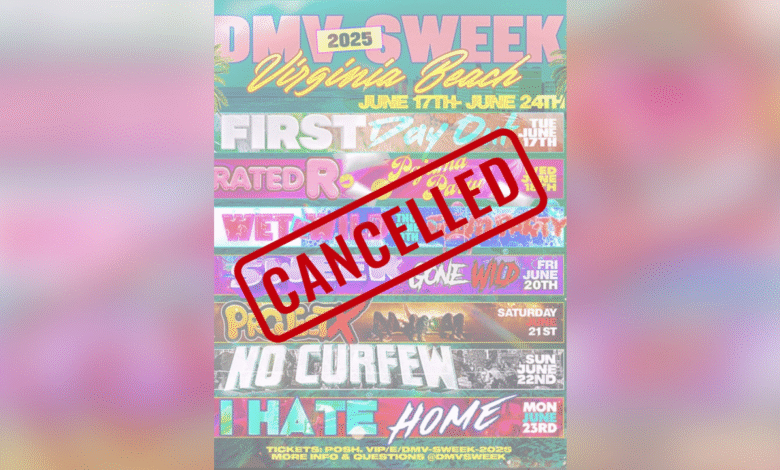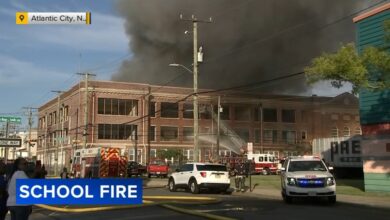Understanding the Landscape of Virginia Beach Non-Permitted Events

Virginia Beach is known for its vibrant social scene—especially during beach week and senior graduation festivities—where spontaneous gatherings often ignite the energy of the city. But without proper permits, these events can become non-permitted, opening a can of worms for organizers and the city alike. Let’s pull back the curtain on what this means.
First, what are non-permitted events? In Virginia Beach, almost any gathering—like a spontaneous beach week party—held publicly on streets, parks, or the boardwalk demands an official event permit. Ignore the rules, and you’re courting enforcement. The city even states that failure to obtain permits constitutes a violation and, in some cases, results in criminal penalties or administrative action.
Second, enforcement isn’t just paper-pushing. Recently, the Virginia Beach Police Department (VBPD) has cracked down hard on several “Beach Week” events planned without permits. Organizers ignored repeated warnings, prompting the City to cancel them and pursue legal means to recover costs for law enforcement, sanitation, and emergency services.
In short, whenever someone says “Virginia Beach non-permitted events,” it refers to gatherings made without proper approval—placing organizers, attendees, and even locals in a tricky legal and logistical spot.
Why Do Organizers Push Ahead Without Permits?
Believe it or not, there’s often a good reason behind rash decisions to hold unpermitted events—even if it seems reckless at first glance. Let’s walk through the psychology and pressures.
On one hand, spontaneity fuels popularity. Beach week—especially around senior and graduation season—has a built-in hype. Many promoters push events hoping to tap into that buzz before red tape can slow things down. They bank on the idea that “beach week will never be canceled,” as one Instagram post from a promoter insisted.
On the other hand, applying for permits involves bureaucracy. According to the City’s updated permitting system, events on public property need to go through a two-step approval process, including a request followed by a full application—submitted at least 60 days before the event date. Short-notice plans simply don’t have the time for that, and organizers don’t always want to wait.
Financial pressure also plays a role—promoters may have spent on marketing, tickets, DJ or venue deposits, and once those sunk costs hit, the incentive to push forward increases. However, the city isn’t aggressive for no reason. VBPD has affirmed its intention to use “all legal means” to recover associated costs, signaling serious consequences.
The bottom line: it’s not just thrill-seeking—it’s rapid economics, hype, and underestimated bureaucracy colliding.
Legal and Logistical Risks of Non-Permitted Events
Ignoring event permits doesn’t just risk a slap on the wrist—it’s a legal and logistical landmine. Let’s unpack why.
Legal Risks:
- Conducting events on public property without permits isn’t just frowned upon—it’s often unlawful. The City Code states clearly that hosting a public or private event beyond the normal scope without a permit is prohibited and may be prosecuted.
- VBPD makes good on threat: they actively cancel events and seek restitution for city costs (public safety, sanitation, etc.).
Logistical Risks:
- Imagine the costs: hiring escorts for crowd control, medical staff, clean-up teams, or having to shut down unplanned gatherings—those often fall on organizers financially.
- Last-minute cancellations lead to reputation damage. Ticket buyers get angry; the social media fallout can be rapid.
- Worst-case scenario: injuries or property damage during unsafe, unsanctioned events could expose organizers to liability.
Running events without permits—especially on crowded areas like the Oceanfront—adds tension between organizers and enforcement that’s avoidable. It’s not just bad planning; it’s risky business.
The Proper Way—Permits, Planning, and Peace of Mind
Let’s shift gears—here’s how to do it right, responsibly, and successfully.
Step-by-Step Permit Process
- Initial Request – Decide if you’re using public or private property. For public areas, submit a preliminary request up to a year in advance; for private events, at least 90 days before the event.
- Online Application – Complete the permit application with details—site maps, emergency plans, vendor setups, tents, rides, etc.
- Supporting Documentation – Provide insurance certificate naming the City as additional insured (with $1M liability minimum), and vendor or EMS plans as needed.
- Review and Wait – The City uses a streamlined online system that offers real-time status updates and improves approval consistency.
- Approval & Execution – Once approved, attend to required city services (e.g., sanitation, security). It’s smoother—and legal.
Why It Works Better
- You avoid cancellations, fines, and legal hassles.
- Insurance protects both you and attendees.
- Vendor and city support ensure safety and structure.
Quoting the Experts
“VBPD has been made aware of multiple events being planned for next week that lack the appropriate permitting approval.”
VBPD said they will “pursue all legal means to recover from promoters of unsanctioned, non-permitted events, all costs and fees associated with providing supplemental law enforcement, firefighters, emergency medical services, and sanitation services…”
These aren’t just words—they’re reality. Enforcement is real, and the associated costs—emotional and financial—are too.
FAQs on Virginia Beach Non-Permitted Events
Q1: What exactly qualifies as a “non-permitted event” in Virginia Beach?
A1: Any gathering—festival, concert, party, public performance—on public streets, parks, or public property without an approved outdoor event permit is considered non-permitted. Even some private gatherings need permits if they exceed normal use (e.g., commercial, large-scale).
Q2: Can I be prosecuted for running a small unpermitted event?
A2: Yes. The City Code advises that holding events without permits may be unlawful, and VBPD can take legal or financial action—even for small gatherings if they require city resources.
Q3: What happens if I ignore warnings from VBPD?
A3: If you proceed, you risk event cancellation, cost recovery actions by the city for services used, and potential disruption or liability issues.
Q4: Do private property events require permits?
A4: Yes—if your activity surpasses typical property use based on zoning rules. For many commercial or large-scale private events, permits are still required.
Q5: How far in advance do I need to apply?
A5: For public property—up to a year in advance. For private property, at least 90 days prior. Final applications must be submitted at least 60 days before the event or the beginning of load-in.
Final Thoughts
Navigating Virginia Beach non-permitted events isn’t about extinguishing fun—it’s about creating safe, legal, and memorable experiences. As an expert’s guide, here’s the takeaway:
- The hype is real, but the rules are firm.
- Avoid chaos by planning right—far ahead, with permits and documentation.
- The city’s systems are in place to help, not hinder.
- Protect your event, your guests, and yourself from legal and operational risks.
Keep it smooth, keep it vibrant—and let the Oceanfront be your backdrop for responsibly wild memories.




